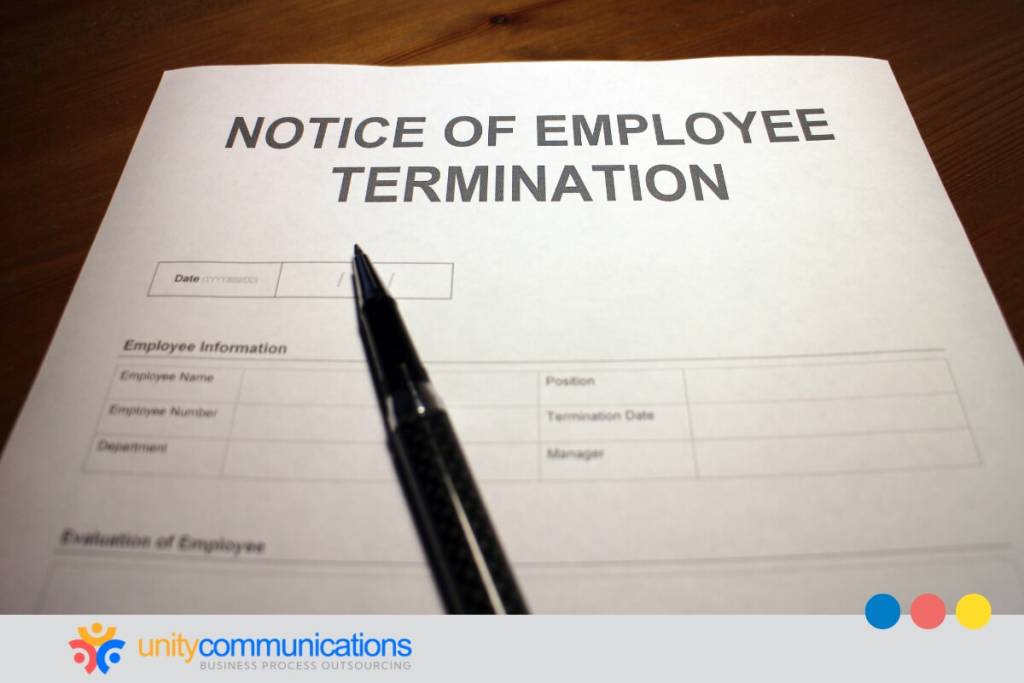Contents
As a small company owner, you may be inclined to manage all business procedures on your own, particularly when you initially start. However, outsourcing some of the most concerning, time-consuming activities — such as accounting — is often useful.
Accounting is a critical component of any organization since it influences practically every choice you make. If you are not a seasoned expert in money management, tax preparation, or cash flow tracking, it is well worth the investment to hire an accountant or accounting firm to assist you.
Modern company owners associate with third-party accounting companies because they provide an agile solution that functions as a “one-stop-shop” for all bookkeeping, accounting, and tax-related services.
To assist company owners in making sense of outsourced bookkeeping and accounting, we created a guide that explains how companies can make good use of third-party bookkeeping and accounting solutions.
What Is Outsourced Accounting?
In management accounting, outsourcing is the option to purchase a product or pay someone to manufacture it for you rather than doing it yourself. This option is often considered when acquiring the goods or labor to construct something that is more cost-efficient or less expensive than doing so in-house.
Outsourcing labor became popular in the mid-twentieth century as US businesses sought methods to reduce expenses and make things more cheaply. Because labor costs in Japan and other Asian nations were far cheaper than in the United States, many businesses established manufacturing operations in these countries and used local employees rather than US labor. This approach is now more often referred to as job outsourcing or work relocation.
Management’s only consideration in the outsourcing decision-making process is cost reduction. Oftentimes, potential costs and manufacturing capacity constraints must be considered as well.
Learn more about The Best Cloud-Based Business Phone Systems This Year here!
Why Should You Outsource Bookkeeping Services?
With the increased access provided by the internet world, it is becoming more feasible for businesses to take outsourcing one step further. Rather than hiring in-house accounting staff or doing it themselves, more firms are discovering the many benefits of outsourcing bookkeeping operations. The following are the top five perks that you may also enjoy:
Save Time
Outsourcing your company’s accounting processes frees up significant time that can be used for strengthening and expanding the firm. Back office duties may be a significant distraction from day-to-day operations, and in-house accounting might create a conflict of interest. All of these time sinks and diversions must be eliminated so employees can focus on what is needed most – focus on company goals for profitability.
Save Money
The bottom line is that outsourcing accounting operations saves money by eliminating the cost of full-time or part-time staff compensation and benefits. Additionally, you save on lost productivity expenses associated with recruiting new personnel. By outsourcing your accounting, you pay for just what you require—no more, no less.
Make Scaling Easier
Outsourcing your accounting enables you to scale up or down in an instant. Whether you are trying to expand your company or save costs, having a dependable staff on hand to provide you with financial ideas and solutions can assist you in accomplishing your objectives. Outsourcing offers a level of flexibility that in-house bookkeepers just cannot match.
Access To The Most Advanced Systems
Outsourcing your accounting operations provides you with more access to the industry’s leading technologies. The majority of companies cannot afford the prohibitively costly accounting systems or the time required to stay current on new rules and regulations.
By outsourcing, you are effectively acquiring those tools and expertise by proxy, but the best part is that you will not have to perform any of the work yourself! Additionally, these best systems produce nightly backups and maintain structured records and books for years, assuring that you will be more than prepared if the IRS ever comes knocking for an audit.
See how do you set up a two-line phone system
How Much Do Outsourced Bookkeeping Services Cost?
The typical annual wage for a full-time in-house bookkeeper or accountant is between $35,000 and $55,000. Apart from wages, you will almost certainly incur additional costs for benefits and a certain amount of overhead for items such as office space and equipment.
For small firms, outsourcing accounting costs between $500 and $2,500 per month, on average. The real cost is quite variable and is determined by the volume of transactions processed each month and the complexity of services provided.
Costs will likely be somewhat higher for bigger businesses with more complicated demands, ranging between $2,500 and $5,000 per month. However, you avoid equivalent or greater payroll expenses and are relieved of responsibility for benefit or retirement packages, as well as other relevant costs.
See more information about the Cloud Phone System Pros and Cons: Detailed Review here.
What Are Typical Rates For An Outsourced Bookkeeper?
A bookkeeper keeps track of and retrieves all of your business’s transactions. These transactions serve as a record of your purchases (receipts) and sales (invoices) of the items and services necessary to operate your company.
The typical monthly cost of outsourcing accounting services for a small firm begins at roughly $400 for very basic payroll administration and increases to around $900 or more. However, fees for more complex accounting might start at $2,500 per month and go up to at least $5,000 per month, depending on your needs.
The average accounting rates for maintaining your firm’s books vary according to the abilities required and the size of your business. At the most basic level, a bookkeeper maintains your accounts and prepares them for examination by an accountant before submission to state and federal tax bodies.
Check out what a hosted VoIP is!
What Types Of Organizations Use Outsourced Bookkeeping?
Every firm, regardless of size, must do accounting chores. All businesses are required to keep accurate and updated financial records. Some small company owners manage their own accounting. However, many others outsource their financial records to professional bookkeepers. Some corporations do hire in-house bookkeepers, others outsource accounting functions to firms that specialize in delivering these sorts of services.
Universities And Colleges
Colleges and universities employ accounting specialists who are responsible for the administration of tuition charges to student accounts, the application of financial assistance and scholarship funds, and the posting of cash payments.
Governmental Organizations
All levels of government, including municipal, county, state, and federal, employ individuals to conduct accounting services. The abilities required differ significantly amongst agencies, depending on the services provided. Several government career possibilities are available for persons with billing, collection, payment posting, and tax or licensure fee calculation abilities.
Further reading: Simple Steps To Set Up A Phone System For Your Business
Providers Of Healthcare
Hospitals, physicians’ offices, dentists’ offices, and other sorts of healthcare professionals depend on bookkeepers’ services. Healthcare bookkeepers perform a number of functions, including medical procedure coding, insurance verification, Medicaid billing, private insurance billing, patient invoicing, collections, payment posting, and financial reporting.
Accommodations
Hotels and motels hire employees to manage everyday accounting chores. Because the majority of hotel chains demand daily revenue reporting, each site must have people devoted to maintaining accurate account statements at all times.
Related to the fact that hotels often staff their front desks 24 hours a day and accounting reports are due at the end of each day, it is normal for them to engage night auditors who handle both desk clerk and bookkeeping duties.
Retail Establishments
After each day, retail establishments are responsible for balancing and properly recording the day’s financial transactions. Independently owned retail businesses often employ an in-house bookkeeper to handle all areas of bookkeeping.
Some businesses prefer to outsource entire accounting functions to a third-party service. Retail establishments that are part of a bigger chain often delegate the most complex activities to their corporate headquarters. However, many accounting responsibilities must still be handled at the individual store level.
Discover the Best Multi-Line Phone System For Small Businesses in 2021 here!
What Are The Steps In Bookkeeping?
Bookkeeping is the process of keeping track of a business’s financial activities and debiting and crediting certain accounts. Each item corresponds to a unique commercial transaction. Each accounting system includes a chart of accounts that details both individual accounts and account categories.
Generally, each item on a company’s balance sheet and income statement has at least one account. Although there is no theoretical limit to the number of accounts that may be established, the overall number of accounts is often governed by management’s information requirements.
Bookkeeping is a four-step process:
1) assessing financial transactions and allocating them to specified accounts;
2) creating original journal entries that credit and debit the right accounts;
3) posting entries to ledger accounts,
4) making adjustments after each accounting month.
Bookkeeping is predicated on two fundamental ideas. One is that each debit must be accompanied by an equivalent credit. The second requirement, that all accounts must balance, is a corollary to the first.
Summary
After determining why and what to outsource, it is time to choose an accounting firm for your business. There are several variables to consider, but ultimately, you will want to work with a company that fits you, your team, and your business’s objectives.
For example, you will want to find a business with an accessible location (remote or within your neighborhood) so you do not have to go too far or too often. Additionally, look at the firm’s expertise and credentials to ensure that you can trust its staff to manage and develop your income.
You will discover that accounting services for startups enable businesses to expand swiftly and effectively without incurring excessive financial costs. If you are contemplating employing one of these organizations, research the accounting services firms that provide the services you want and then verify their references and testimonials to ensure they are a good match for your business.
Find out what a cloud-based system is here!











